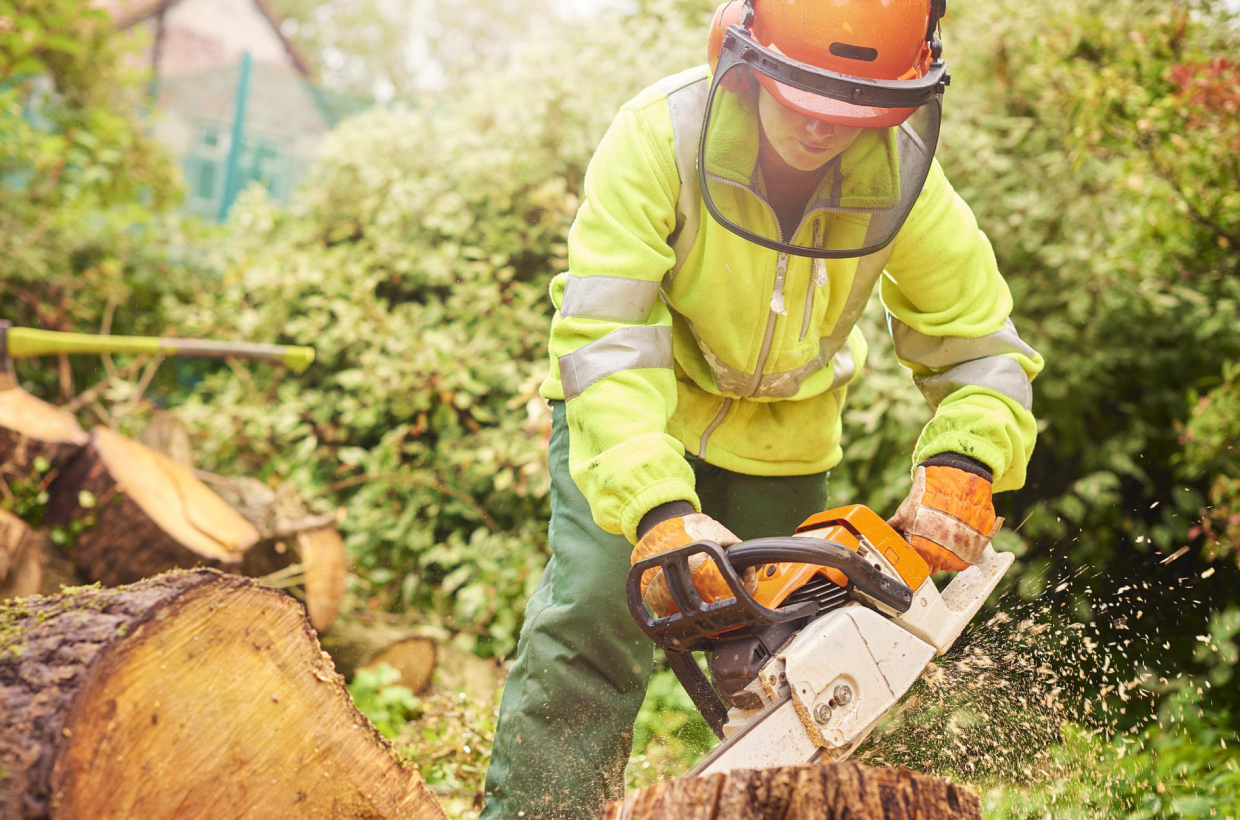
Agronomists advise farmers on soil management to improve crop production. They investigate all factors that could affect crop growth and yield and tell farmers the practices to use to maximise profitability for their farm.
Agronomists look at soil composition, water levels and drainage, introduce fertiliser programmes, and create treatment plans to keep crops free of pests and weeds without harming the environment. They have a good understanding of the latest research and making sure that all government legislation is complied with.
Also known as: Crop Scientist, Agronomy Manager
You’ll need:
complex problem-solving skills
business management skills
to work well with others, as well as on your own
analytical thinking skills
excellent verbal and written communication skills
to use a computer competently
a keen awareness of climate change and how it affects agriculture
a full driving licence
BASIS and FACTS qualifications are essential, but are usually taken as part of ‘on the job’ training. You'll need BASIS Certification in Crop Protection if you're advising on or selling pesticides in the UK - this is a legal requirement.
35-40 hours a week, working between 9am - 5pm but may need to gather samples out of hours and in all weathers.
Study soil, water and other factors which affect crop growth
Advise farmers of your findings and how they can improve their crop yields in a reader-friendly format
Establish treatment plans to keep crops free of pests and weeds
Carry out field trials to solve clients' crop problems
Collect and analyse crop yield, environmental conditions and financial data, monitoring any potential impacts from changing practices
Keep up to date with product developments and legislation
Your work could take place in an office, on a farm or at a research facility. You may be working outdoors some of the time and will need to travel to different farms. You will need to wear protective clothing (PPE) to gather samples, for safety and to ensure no contamination.
Agronomists are employed in a wide variety of organisations, from Government departments, research organisations, to businesses that sell goods such as seeds, chemicals, etc.
Training is an essential part of any job, giving you the skills and knowledge you need to do your job safely and correctly. It also helps to strengthen your current skill set and prepares you for the next stage in your career.
Apprenticeships help you build the experience and skills that employers want to see. No matter what stage you’re at, they’ll help set you up for a bright future. There are lots of ways to get involved.
You could specialise within agronomy in areas such as precision farming using the most up-to date-technology or developing nutrition plans for fruit or vegetable crops.
Many Agronomists register with the voluntary Fertiliser Adviser’s Certification and Training (FACTS) scheme and become a FACTS Qualified Advisor, making recommendations for fertiliser use which are both economically and environmentally sound. They can also continue to improve their knowledge studying advanced courses and go on to achieve the BASIS Diploma in Agronomy. You could also study for a postgraduate qualification in soil science or genetics and become an Agriculture Consultant.
Agronomist will usually work in one of the following industries. Click below to find out more about possible career paths.
Diverse, dynamic and rewarding – if you’re practical and love the outdoors, then a career in agriculture could be for you.
Agriculture is diverse, dynamic and rewarding, with a huge range of interesting and varied career options. If you’re practical, hardworking, love the outdoors or have a passion for science and technology then working in agriculture could be for you.
The UK and Ireland's farmers and crofters play a huge part in looking after our natural landscape. While producing food, they can improve biodiversity, plant trees, restore peat, improve water and soil quality, and generate renewable energy. From the latest trends in data science to new methods of animal husbandry, land management and ecology, working in agriculture is a direct way to address the climate emergency, as well as supporting rural life.
If you’re interested in technology, you could work on a farm using the latest equipment and science to produce food sustainably, safely and efficiently. Or if you want to radically change how we produce food and use our land working vertical farming or remote sensing could be for you. More than ever, agriculture needs innovative, enthusiastic people to help make the food we produce both taste good and make good sense for the planet.
Utilised agricultural land use stands over 70% of the total area of the United Kingdom and over 82% of the Republic of Ireland
Total income from farming in the United Kingdom is estimated to have been £4.1 billion in 2020
Economists at Teagasc estimate that in 2021, the average family farm income in the Republic of Ireland increased by 20% from the previous year
Principal destinations for UK food, feed and drink exports include the Republic of Ireland, France, the USA, and the Netherlands
The world of horticulture and landscaping is fast-moving, ever-changing and leading the way in combatting climate change.
Growing and harvesting plants for financial, environmental or social benefits not only helps the environment, it can also boost wellbeing – and from lawn mowing to landscaping, greenkeeping to scientific research, horticulture offers a huge range of rewarding careers.
Humans have been been growing plants and maintaining the natural environment since ancient times and horticulture has never stopped changing and adapting. As we learn more about the impact of climate change and weather extremes, horticulturalists are dealing with some of the biggest issues of the day: what will we plant in the future if resources like water and nutrients become limited? How do we make the most of the rapid advances in growing techniques, machinery, and cultivation?
Horticulture and landscaping plays an important part in our economy. It’s a dynamic industry, with continuous research and development and a focus on using technology to make growing more sustainable. That has created a range of exciting job opportunities for people who are passionate about plants, science and growing solutions.
The UK horticulture industry is worth over £9 billion each year
The industry supports the employment of almost 340,000 people, with landscapers and retailers accounting for 83% of the total
Private gardening is an important activity for UK citizens, with households spending £7.5bn on gardening goods, including cut-flowers, a year
The Republic of Ireland's horticulture industry is valued at €477m; it is the fourth largest industry after dairy, beef and pigs in terms of gross agricultural commodity output value
The industry employs approximately 17,000 people in the Republic of Ireland - an estimated 6,600 people directly employed full-time and another 11,000 indirectly employed in value-added and downstream businesses
These courses are perfect if you are starting out on your career but they are also great for people already in jobs who want to improve their skills.
To find out more about qualification levels in England please visit Regulated Qualifications Framework (RQF) for England and Northern Ireland or Framework for Higher Education Qualifications for England, Wales and Northern Ireland (FHEQ) .
To find out more about qualification levels in Northern Ireland please visit Regulated Qualifications Framework (RQF) for England and Northern Ireland or Framework for Higher Education Qualifications for England, Wales and Northern Ireland (FHEQ).
To find out more about qualification levels in the Republic of Ireland, please visit National Framework of Qualifications for Ireland (NFQIE)
To find out more about qualification levels in Scotland please visit Scottish Credit and Qualifications Framework (SCQF).
To find out more about qualification levels in Wales please visit Credit and Qualifications Framework for Wales (CQFW) or Framework for Higher Education Qualifications for England, Wales and Northern Ireland (FHEQ).
| Title | Level |
|---|
These courses are perfect if you are starting out on your career but they are also great for people already in jobs who want to improve their skills.
Whether you’re just starting out in the workplace, want to upskill or are considering changing direction, Apprenticeships are a fantastic way to build your career. Apprenticeships combine work with on-the-job training, so if you want to earn as you learn, there’s an apprenticeship out there for you – you can even start an apprenticeship if you already have a degree.
Work, earn and learn – no matter where you are in your career, an apprenticeship can set you up for a bright future.
Let’s get started!
Want to take on an apprentice? Employers start here.
An apprenticeship is a unique blend of work experience and study to help build the skills and knowledge you need for your career. Apprentices are employees – they have a contract, are paid and get the same benefits as everyone else. But the difference between an apprenticeship and a normal job is that apprentices are regularly released from work for training. Sometimes that’s a day a week, sometimes it’s for a longer block – it all depends on the job and the apprenticeship.
Apprentices work for all kinds of people at all kinds of stages in their lives. Most apprentices fall into one of three categories:
Previously restricted to school leavers and young people, apprenticeships are now a dynamic way of retraining people of all ages - there’s no upper age limit. The minimum age to become an apprentice is 16 and candidates can’t be in full-time education.
Apprenticeships offer a unique combination of paid work and study. They’re an exciting option for anyone who wants to gain experience, upskill or change career while working.
They offer a chance to work, learn and earn:


Interested in becoming an apprentice? Search for current opportunities and apply here.
Find your apprenticeship
You can also check vacancies on employer websites or get in touch with your local careers service.
What’s it like to work, earn and learn? Find out what apprentice life is really like.
Explore apprenticeship stories
Association of Independent Crop Consultants (AICC)
Find out more
BASIS
Find out more
Wales Young Farmers’ Clubs (Wales YFC)
Find out more
Young Farmers’ Clubs of Ulster (YFCU)
Find out more
National Federation of Young Farmers' Clubs (NFYFC)
Find out more
NFU Cymru
Find out more
Farmers' Union of Wales
Find out more
National Farmers Union Scotland (NFU Scotland)
Find out more
Ulster Farmers Union (UFU)
Find out more
Scottish Association of Young Farmers Clubs (SAYFC)
Find out more
National Farmers Union (NFU)
Find out more
Horticulture Wales
Find out more
Royal Caledonian Horticultural Society (The Caley)
Find out more
Royal Horticultural Society (RHS)
Find out more
Chartered Institute of Horticulture (CIH)
Find out more
Horticulture Forum NI
Find out more
Horticultural Trades Association (HTA)
Find out more
Thinking about your finances is important when you're looking at courses and training - different types of funding support is available depending on what type of course you're interested in and where you are located. We recommend you contact the training provider for more information on course costs and financing, but here are some links to connect you to support available:
Skills Hub Scotland is an online skill sharing marketplace creating new opportunities to learn and share skills. Wherever you are located - if you have a skill to share, or a skill to learn, Skills Hub Scotland can help.
Initially founded as a response to the Scottish Government’s CivTech 5 programme in 2020 and aiming to offer a platform for those in rural or remote locations, Skills Hub Scotland has been developed into an important sectoral resource. If you have a skill to share with others or are a training provider, list your workshop or course (all skills from all sectors are welcome). If you are a learner, use Skills Hub Scotland to search for and book a course!
STEM is an approach to learning and development that incorporates the areas of science, technology, engineering and mathematics. Learning in STEM connects to Education for Sustainable Development/Learning for Sustainability and the Sustainable Development Goals – this helps learners to understand that STEM plays a vital role in finding solutions to real world issues or challenges such as protecting biodiversity and tackling climate change. There are multiple pathways into a land-based STEM career including apprenticeships, further and higher education. This means that a career in STEM is open to everyone!
STEM Learning is the largest provider of STEM education and careers support in the UK. Their STEM Ambassadors programme sees volunteers representing a vast range of STEM-related jobs work with young people to bring STEM subjects alive through real life experiences. They help to open the doors to a world of opportunities and possibilities which come from pursuing STEM subjects and careers. To become a STEM Ambassador, you can register via the STEM Learning website: https://www.stem.org.uk/stem-ambassadors/join-stem-ambassador-programme
Lantra have worked in collaboration with STEM Ambassadors in Scotland to create two specific UK-wide Ambassadors schemes - Forestry and Aquaculture. Through these schemes, we want to make sure that those working in forestry and aquaculture have the support materials they need to take part in STEM activities. To find out more and register for the schemes, please follow the links below:
Smart Futures helps young people in Ireland discover the STEM subjects and careers that might be right for them. Co-ordinated and managed by Science Foundation Ireland, their programme allows young people to connect with people that are working in STEM, the organisations they’re working in and what their interests and skills are.
Why not take a look at the Industries Explorer as an introduction to the different areas you could work in.
If we can support you with any specific information, please click the button below to get in touch.